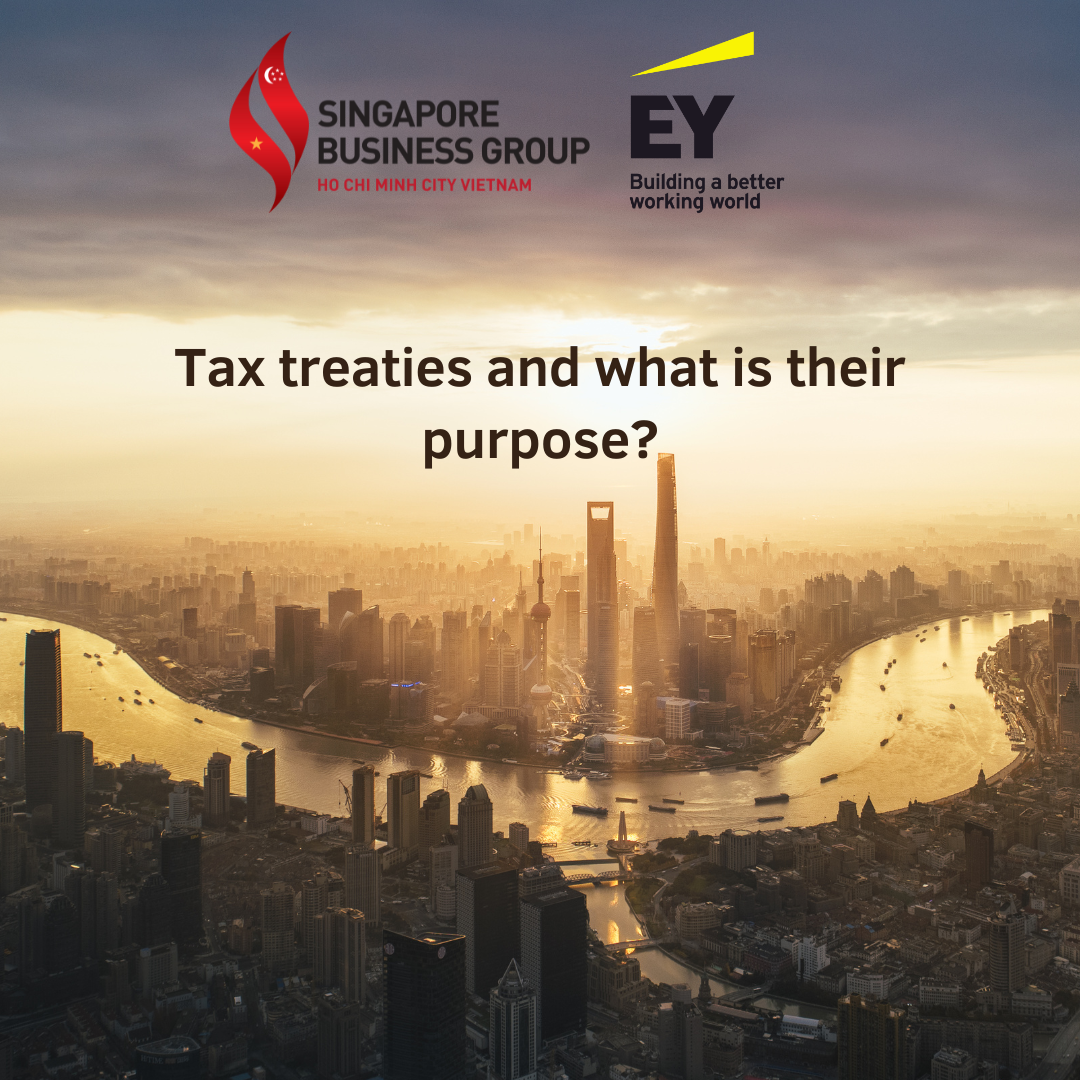SBG Corporate Member – Ernst & Young Vietnam Limited, would like to share with you the article below:
Authors:
- Thy Thi-Anh Huynh, Partner, International Tax and Transaction Services, EY Consulting Vietnam Joint Stock Company
- Wesley Chua, Manager, International Tax and Transaction Services, EY Consulting Vietnam Joint Stock Company
Tax treaties and what is their purpose?
Due to the rapid growth in international trade and increased cross-border flows of capital, technology, and expertise, businesses will need to understand the importance of tax treaty to seize opportunities for higher returns. In most cases, the presence of tax treaties can make a significant difference to the tax outcome in both the country of source[1] and the country of residence[2] of the investor.
In this three-part article series, we will look at how a tax treaty works and how it can reduce the tax burden on the profits or gains made.
In general, tax treaties may be broadly categorized into 3 types:
- Comprehensive tax treaties
- Tax treaties for the Exchange of Information (‘EOI’) and
- Limited tax treaties, typically for Air and Sea Transport.
In this article, we will focus on the first category, i.e. comprehensive tax treaties. Such treaties cover the allocation of taxing rights between two jurisdictions.
Elimination of double taxation
The main stated objective of a tax treaty is to avoid double taxation which can happen in the following situation:
- Profits of a company may be taxed twice; the first time on the company when the profits are earned and the second time on its shareholders when the profits after tax are distributed
- Country of income source is different from the country of residence of the person deriving the income.
- Transfer pricing adjustment
The first two situations can happen due to the application of different tax systems i.e. source-based or residence-based. In the case of dual source, tax treaties may resolve this by requiring one jurisdiction to grant relief for any tax that has been paid in the other jurisdiction. In the case of dual residence, tax treaties may provide for tie-breaker rules, so that a company can only be the resident of one country for the purposes of the tax treaty, thereby avoiding the risk of double taxation due to dual residency.
In the situation of a transfer pricing adjustment, double taxation may arise when the same profits are taxed twice as a result of any foreign tax authority’s transfer pricing audit and application of arm’s length price. To eliminate double taxation, taxpayers may seek relief through the Mutual Agreement Procedure (“MAP”) provided in a tax treaty.
Provision of clarity and certainty
Although not expressly stated, a tax treaty can have other implicit objectives as well. In particular, economic relations can be strengthened through a tax treaty by way of providing clarity and certainty in taxation matters. This is crucial to businesses when considering if any cross-border project or investment is viable or worth pursuing in any overseas location, especially when there are competing alternative locations to invest their finite resources.
Conclusion
Businesses that engage frequently in cross-border activities may benefit from tax treaties signed between their country of residence and the foreign jurisdiction. Since tax treaties are important international agreements signed between sovereign states, investors will need to study closely on how a tax treaty will impact their cross-border investment activities or seek professional advice to understand if treaty benefits apply to their business.
In the next part of this series, we will explain some of the key concepts found in a typical tax treaty.
Disclaimer
The views reflected in this article are the views of the authors and do not necessarily reflect the views of the global EY organization or its member firms.
[1] Country of source refers to where income is generated.
[2] Country of residence refers to where the investor is typically domiciled in. Having said that, different jurisdiction has different definition of how to determine residency.
—————-
For more information on the article, please reach out to the contact below:
Ernst & Young Vietnam Limited
20th floor, Bitexco Financial Tower, 2 Hai Trieu Street, District 1, Ho Chi Minh City, S.R. of Vietnam
Tel: +84 28 3824 5252
Web: https://www.ey.com/en_vn
Email: wesley.chua1@vn.ey.com








